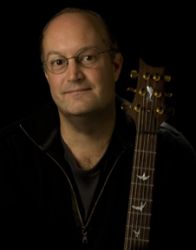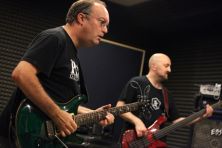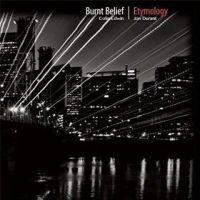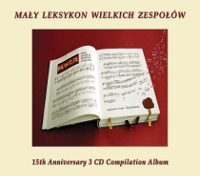 Jon Durant is an innovative experimental guitarist and composer from Boston, USA, best known as one half of Burnt Belief, his critically acclaimed eclectic collaboration with Colin Edwin (Porcupine Tree). Jon has also enjoyed much recognition with his boundary-crossing solo work over the last two decades. He has innovated guitar playing by inventing electric-guitar based soundscapes he refers to as ‘Cloud Guitars’, which add a tastefully inimitable atmosphere to his creative output. I have recently sat down with Jon to find out more about him as a personality, about his musical roots, the upcoming sophomore record by Burnt Belief and…whether he could live without Pink Floyd.
Jon Durant is an innovative experimental guitarist and composer from Boston, USA, best known as one half of Burnt Belief, his critically acclaimed eclectic collaboration with Colin Edwin (Porcupine Tree). Jon has also enjoyed much recognition with his boundary-crossing solo work over the last two decades. He has innovated guitar playing by inventing electric-guitar based soundscapes he refers to as ‘Cloud Guitars’, which add a tastefully inimitable atmosphere to his creative output. I have recently sat down with Jon to find out more about him as a personality, about his musical roots, the upcoming sophomore record by Burnt Belief and…whether he could live without Pink Floyd.
Dmitry Oliferowicz: Hi Jon! Let’s start with some basic facts about you. Your tool of trade is the electric guitar. How did you come to pick it up
Jon Durant: As long as I can remember, there was a guitar in the house growing up. My uncle had lived with us for a little while when I was very young, and he’d introduced us to the guitar and to rock music. My mother was from a family with a strong classical music background, (my grandfather designed and voiced Pipe Organs) so music was always around. By the time I was 12, I knew I really wanted to play guitar and convinced my parents to get me one. Also my older brother Kingsley (who did an album for Alchemy in 2003, “Away From the Water”) had been playing guitar for a while, and I really gravitated to electric guitar much more than acoustic.
DO: What or who were your early influences? Do you continue being inspired by them?
JD: The first music that really made me sit up and take notice was Yes, when “Roundabout” came out in 1972. (I was all of 8 years old!) From there I developed an insatiable appetite for what’s now known as “progressive rock”. Interestingly, I think Steve Hackett from Genesis had much more of an influence on me than Steve Howe did. By 1978, I was playing guitar constantly and discovered Terje Rypdal, which completely took over my young brain. From there, I devoured every ECM record I could get my hands on, which led to Steve Tibbetts, Bill Frisell, and David Torn. And I am still inspired by all of them! (Which reminds me, I need to get Bill’s new record!)
DO: You use exotic, unconventional guitar textures you refer to as Cloud Guitars. Could you tell us more about this technique?
JD: Cloud Guitars are soundscapes created by guitars, utilizing delays and other effects to create musical textures that hang in the air like clouds. Currently, I am using the Pigtronix Echolution 2 deluxe and the Eventide H9 as my primary effects devices. Probably the earliest influence on that was Robert Fripp’s “Frippertronics”. The name actually derives from a moment of my youth, in my basement listening to Tangerine Dream, when a cloud blocked out the sunlight just at a moment when the sequenced synth faded away into a haze of mellotron swirlings. It was an out of this world experience that has always stayed with me. Natural lighting effects!
DO: What are the records you’ve made or contributed to that you are most proud of and why?
JD: Not surprisingly, the new Burnt Belief album “Etymology” is one that I am enormously proud of. There are a number of moments where I’m really pleased with my playing, as well as writing. Several of my other albums have some really cool things as well, but I think that my album “Silent Extinction Beyond the Zero” was also really big moment for me, as it was my first proper record and first to feature Tony Levin and Vinny Sabatino. Over the years, I’ve made a lot of records, and they each have moments that stand out to me, and certainly some moments I might like to have back! The album “Things Behind the Sun” was also a really interesting record, in that it may be my “jazziest” album, and Tony Levin played upright electric for the whole project. I’d wanted to record that one live (as we did on “Dance of the Shadow Planets”, the first one with Colin Edwin) but scheduling wouldn’t permit it. I’m also pleased with a couple unusual projects I’ve played on as they’re so different from my own work: Michael Whalen’s “Mysterious Ways” is a pop fusion record, and I played on a track by soul singer Ray Greene (now of Tower of Power) called “Love is All I Have”.
The process of composing records is always a challenge for me, in that I have always wanted to do something that was different from the previous one. Hopefully that’s continued with Burnt Belief—it’s come together much quicker than my other projects, usually I need more time to get out of the mindset that created the previous one. I think the fact that I’m collaborating with Colin has helped that, as he’s also always looking for something new, and often inspires me with some odd idea he’s come up with.
DO: Burnt Belief is hailed as a unique ethnic-ambient fusion with influences from ambient, electronic, ethnic, jazz and rock music. Does this sumptuous mixture of genres help you guys express ideas that bind us all into one, bringing all ‘musics’ together as opposed to straightforward Western rock or jazz?
 JD: Colin and I are both more interested in music that bridge a number of musical cultures and genres than music that stays safely within one zone. We are both really interested in music from other cultures, and not particularly interested in straight ahead rock music. We’ve both had a fair bit of jazz in our musical pasts, but neither of us is particularly comfortable playing jazz standards at this point in our lives, as it’s not something we’re doing with any frequency. But elements from jazz and rock and world music get pulled into this unique fusion that we do, though it wouldn’t fit into the category of “Fusion” either. Which is why we consider it progressive, even if it isn’t “Prog.”
JD: Colin and I are both more interested in music that bridge a number of musical cultures and genres than music that stays safely within one zone. We are both really interested in music from other cultures, and not particularly interested in straight ahead rock music. We’ve both had a fair bit of jazz in our musical pasts, but neither of us is particularly comfortable playing jazz standards at this point in our lives, as it’s not something we’re doing with any frequency. But elements from jazz and rock and world music get pulled into this unique fusion that we do, though it wouldn’t fit into the category of “Fusion” either. Which is why we consider it progressive, even if it isn’t “Prog.”
DO: Now, last year you and Colin Edwin got a chance to tap into something quite exotic for the Western listener: The Ukrainian folk band Astarta. Could you cast some light on that project?
JD: Yes, that is a really interesting and enjoyable project. Colin had performed in Ukraine with his group Ex-Wise Heads, and had gotten connected with this group Astarta. They began a process where the girls would sing traditional Ukrainian folk songs, then send them to Colin to arrange into a modern rock context. After he had done a couple pieces, he sent them to me looking for input. I was really intrigued by it; I loved the harmonies and intricate rhythmic structures and offered to add some guitar to it. He took me up on it, and continued sending along pieces and eventually I’d played on most of the material. Last year, a couple live opportunities came up for the band (in Kiev and London) and they decided that my guitar was essential to the whole thing and so I ended up doing those gigs, which were fantastic. Unfortunately, the political situation forced us to put a bit of a hold on it. Apparently, the manager is seeking a label to release the material, and everyone is anxiously hoping we can do more, soon.
DO: The second Burnt Belief record, “Etymology”, is scheduled to be released on October 21 via Alchemy Records. Its sound is undeniably rich, luscious, the instrumental solos intertwining on top of the unobtrusive back rhythm, much like a river that meanders down a valley, its flimsiness underscored by underwater rocks, themselves prone to shifting. Yet this river may all of a sudden gloom to disturbed storminess... My impression is that “Etymology” doesn’t dare make a radical departure from the first BB album, but is rather a continued effort of ambient exploration, which has evolved into a livelier, more upbeat and more melody-driven record this time. How would you compare both albums, though?
JD: We never really considered how this would relate to the first album. The only discussion that we had was during the Astarta/Edwin rehearsals in Kiev, where we talked about how much we enjoyed working with a drum kit, which we hadn’t done on either Burnt Belief or my album “Dance of the Shadow Planets,” which was the first project Colin and I had done together. I feel like the drum kit adds a very visceral punch that the hand drums simply don’t do - it’s not that Jerry wasn’t playing with power and passion, he very much was, but the timbre of his hand drums (tablas and other hand percussion) simply don’t pack the same punch.
Melody is a very important part of what we do. I’m not a guitarist who plays stock riffs—I’m simply not interested in that. So all of my solos tend to lean towards strong, unique melodic statements; and this was also true on the previous records, but I think this time I tried to really step beyond a bit.
Also, many of our pieces began their life as cloud guitar textures, which I send to Colin. He’ll then take them and build rhythm tracks either from or around my arrhythmic parts. At which point they come back to me for melodic content, and structure ideas. This process worked really well on the first Burnt Belief, so we decided to continue down that path. However: I also tried to stretch things harmonically this time. Pieces like “Chromatique”, “Not Indifferent” and “Squall” were very dark, stormy clouds, and definitely are a bit more abrasive than the last album. Yet, hopefully, remain reasonably coherent and accessible despite their oddness.
DO: There must be different reasons for musicians, who haven’t known each other before, to get together and start jamming for a future record. What was it that made you think: ‘Oh yeah, I like this guy Colin. I reckon we’ll jell well together’? What’s your chemistry founded upon?
JD: It’s a funny thing: you never know how things will work with different musicians, especially those with really unique voices. Colin and I met in 2007 when I’d taken my son to see Porcupine Tree in NY. Tony Levin (who’d just recorded on my album “Flood”) had arranged with Colin to get us backstage passes. We had a really great chat, and it was clear that we got on well personally. Shortly after that he released his album “Third Vessel”. When I heard it I immediately recognized that we were talking a very common musical language, so I suggested he check out my album “Flood”, which he did and he too saw the similarities. So, when I was listening to the demos I’d worked up for the material that became “Shadow Planets” I realized that I was writing bass lines that were decidedly “Colin Edwin bass lines,” so I asked him if he’d be up for it. Luckily, he was just finishing a long tour with Porcupine Tree and was looking forward to exploring something new, liked the material and said he’d definitely be up for it. We recorded that whole album “live” in the studio, and there was an instant chemistry with all of us that was very obvious. So, when I suggested doing more, he was very enthusiastic and suggested writing together, and Burnt Belief was born.
 DO: Why did you guys choose to call the album ‘Etymology’?
DO: Why did you guys choose to call the album ‘Etymology’?
JD: The way our compositions evolve is quite similar to how words evolve. Someone will have a germ of an idea, which will then get expanded, mutated, altered. But somehow that original germ can still be found within the larger structure. Hence, “Etymology”.
DO: You might remember this funny little game of ours from last year’s Astarta interview: I asked you and Colin to describe Ukrainian folk music with only three adjectives. Let’s play it this time around too: Can you describe the music on Etymology with five adjectives?
JD: This is hard—I’m reminded of Frank Zappa’s “Dancing for Architecture” aphorism. Hmmm: Alive, Atmospheric, Loud (!), Introspective, Fluid.
DO: What music has been on Jon Durant’s playlist lately? Our readers will love being given a few listening tips by you
JD: Well, having just seen the latest incarnation of the Crimson King, I’ve been really enjoying the entire back catalog of Crimson, especially the Steven Wilson 5.1 mixes. Also, with the recent passing of Kenny Wheeler, I’ve been listening to his catalog a lot lately as well. His album “Angel Song” is one of my favorite records ever. For more recent things, I really have enjoyed a couple very different but fascinating albums on Cuneiform records: Janel and Anthony’s “Where is Home” and Sonar’s “Static Motion.” My kids have also turned me on to a couple pop-ish guys that I think are quite interesting: Sufjian Stevens and Bibbio.
DO: There’s nothing like hearing the Burnt Belief music played live. Are you and Colin going to promote it in a tour? If yes, can we hope for some dates in Poland or the rest of Eastern Europe?
JD: I hope so! We’ve got a show in Chicago (we’re playing at Progtoberfest at Reggie’s) at the end of October, and Colin has been working with a couple other groups in Europe, and he’s trying to get us together with the promoters there to try to mount some work in Europe, so stay tuned, we’d love to.
DO: And now it’s time for an extra question, one I simply cannot skip: The last Pink Floyd album, “The Endless River”, is scheduled for release in early November this year. This band has left no music fan unmoved, I’m sure. What’s your reaction to the Masters of the Delicate Thunder making a comeback, with, spookily, one of them, Richard Wright, from out of this world? Could we really do without this record or should we hear it with reverence to mark the end of an era?
JD: Well, while I haven’t heard the record, it’s hard to miss the publicity surrounding it. I hope that it’s a good tribute to Rick Wright, whom I have a tremendous amount of respect for. However: I haven’t listened to any of their post “Animals” records in years, so I’m probably not in a good place to comment. I’m sure there will be some wonderful guitar work from Gilmour, so that’ll be worth looking forward to. As for the end of an era, to me it ended with “Animals”. From there on, it was never really the same band; it seemed like a Roger Waters project, and after the split they never seemed to jell to me.







